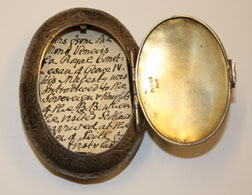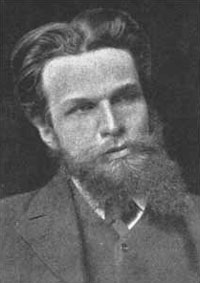
I have
premenstrual dysphoric disorder, or PMDD for short. It's what doctors call the more popular "premenstrual syndrome" when the psychiatric symptoms are so severe that they prevent you from basically functioning.
From a feminist political standpoint, it's a deeply troubling diagnosis. Women have had to fight hard over the last century to combat the sexist stereotype that we're somehow inherently more emotional and less rational than men are; and that stereotype has kept women out of leadership positions for centuries. In Victorian times, the medical concept of "hysteria" made femaleness virtually synonymous with insanity. So I definitely understand why, as John F. Kihlstrom writes: "Some feminist professionals, including the APA’s Committee on Women and the National Coalition for Women’s Mental Health, objected to the inclusion of such a syndrome under any label. From their point of view, menstruation is a normal bodily function, and any psychological changes associated with this function should be seen as normal as well. Classifying PMS or PMDD as a mental disorder stigmatizes women..."
But for all my rage against disempowering stereotypes, my actual experience of PMDD resembles bipolar disorder a lot more closely than it resembles vaginal bleeding. I've been keeping a paper diary since I turned twelve, and I keep it mostly in narrative format. Then, throughout the diaries of my early teen years, there are sporadic entries of suicidal rants with no "story" whatsoever, just repeating over and over that I hated myself and wanted to die. Generally, the entry before or after would be something cheerful and mundane, like "I did well on today's English test," or "Today I went with my friends to the mall" - offering no clue toward why I might have felt suicidal the day adjacent. Only years later do I recognize: That's the record of my early menstrual cycle. One of the more impressively oblivious rants from age thirteen claimed, "My mom says I only feel this way because of my hormones. Which proves that my mom doesn't understand anything. I hate her!"
Luckily for me, my mother knew what she was talking about. She put me on birth control pills when I was sixteen, despite the fact that I really was a virgin. The birth control pills suddenly gave me a predictable 28-day cycle. There's no way of knowing how much the relative alleviation of my breakdowns can be attributed to hormone regulation and how much was just getting older and thus further from the universal hellhole of puberty. But once I had a 28-day cycle, it was much easier to notice the correlation between my worst mood swings and the reminder to stash pads in my backpack. By the time I got to college, I had built enough self-awareness to mark my calendar, not plan anything strenuous or important on premenstrual days, and warn my roommate and boyfriend, "Next Wednesday I'll probably be crazy, so don't worry about me then. I'll feel better on Thursday." Given the quantity of sporadic suicidal thoughts I had between ages twelve and fifteen, the medical intervention of birth control pills may have saved my life.
Each month, the PMDD usually starts with an overreaction to some minor catalyst, and then it takes me at least a minute to connect that I am overreacting. In this state I have cried at TV life insurance commercials (the ones with people ruminating on what would happen to their loved ones if they died), and I have literally shaken with rage at simple requests from my boss. And every time I catch myself is surreal: What I'm feeling strongly is not my feelings. That's just dysphoria. But the faster I catch it, the better I can usually calm myself down. Heightened self-awareness doesn't make it go away exactly, but it does allow me to assure myself: You don't actually believe that. You're stronger than this. You'll definitely feel better tomorrow. At which point it's easier to laugh at my own absurdity. If I was unhappy a few days earlier, too, I find myself dwelling more energetically on my problems, but I still know better than to confront anyone the day before my period. And when everything else in my life is going well, then I find myself dwelling on the frustration of PMDD itself and the burden of my "defective brain."
And then, not every month but sometimes, then there is no catalyst, and there are no thoughts in my head but pain. I just curl up in the fetal position and writhe and sob. (This is when it's especially important to have warned the people I live with in advance.)
I did get a prescription for anti-depressants at one point, but they came with a severe side effect of insomnia. So I had the choice of being crazy from PMDD or crazy from not sleeping for a week at a time, so I quit taking the pills. The one great miracle cure is marijuana. Pot's "side effects" still prevent me from any kind of productivity, but if I know that I'm going to spend several hours useless on my couch, spending them high is a lot more pleasant than spending them crying.
I am infuriated by the stigma, but not because doctors recognize PMDD as a medical disorder. Claiming a medical disorder is how I rationalize myself through it, and treat the symptoms with marijuana while I wait to feel better. What degrades me are the general taboos against discussing menstruation, or "craziness." I've gotten more comfortable discussing PMDD over time with my friends, which is a godsend when it starts to come on and I'm free to be honest about why I suddenly start acting strange and need to go home. But there's little worse than needing a good cry while I'm at my day job or a large family event, and feeling that it's "not okay" to talk about my menstrual cycle or my mental illness - let alone both at once. But if PMDD must be kept private, then what am I supposed to do when I can't stop myself from crying and it's that awkward to tell anyone why? Usually I hide in bathrooms, or comb my hair over my eyes and try to be very still and very quiet and hope nobody tries to talk to me. But boy would it be easier to just choke out between sobs, "I have PMDD and I'm going to go be alone for a while," without the rational fear of losing respect. In my ideal society, PMDD would have the same social implications as migraines: an unpleasant medical issue that makes people need to lay down quietly for a while, but also goes away, and doesn't imply an inherent character flaw.
From a feminist ideological standpoint, it's still frustrating to admit that my female hormones do sometimes make me uselessly hyper-emotional. But feminism has to reflect the actual experience of living women if anyone can be expected to live by it. I have PMDD, but PMDD doesn't describe what I am any more than a migraine would. When my vagina starts bleeding and my emotions level out, there's a great joy in re-disovering my intellect, my humor, and my "real" self again.
 I love stumbling across alternative-sexuality history lessons. I love it because we're absent from most history accounts, due both to censorship and to our predecessors' desire for their own privacy. And then sexually liberated people and conservative reactionaries end up with the same misguided belief that rampant, shameless sexuality is something Westerners invented in the 1960's.
I love stumbling across alternative-sexuality history lessons. I love it because we're absent from most history accounts, due both to censorship and to our predecessors' desire for their own privacy. And then sexually liberated people and conservative reactionaries end up with the same misguided belief that rampant, shameless sexuality is something Westerners invented in the 1960's.











